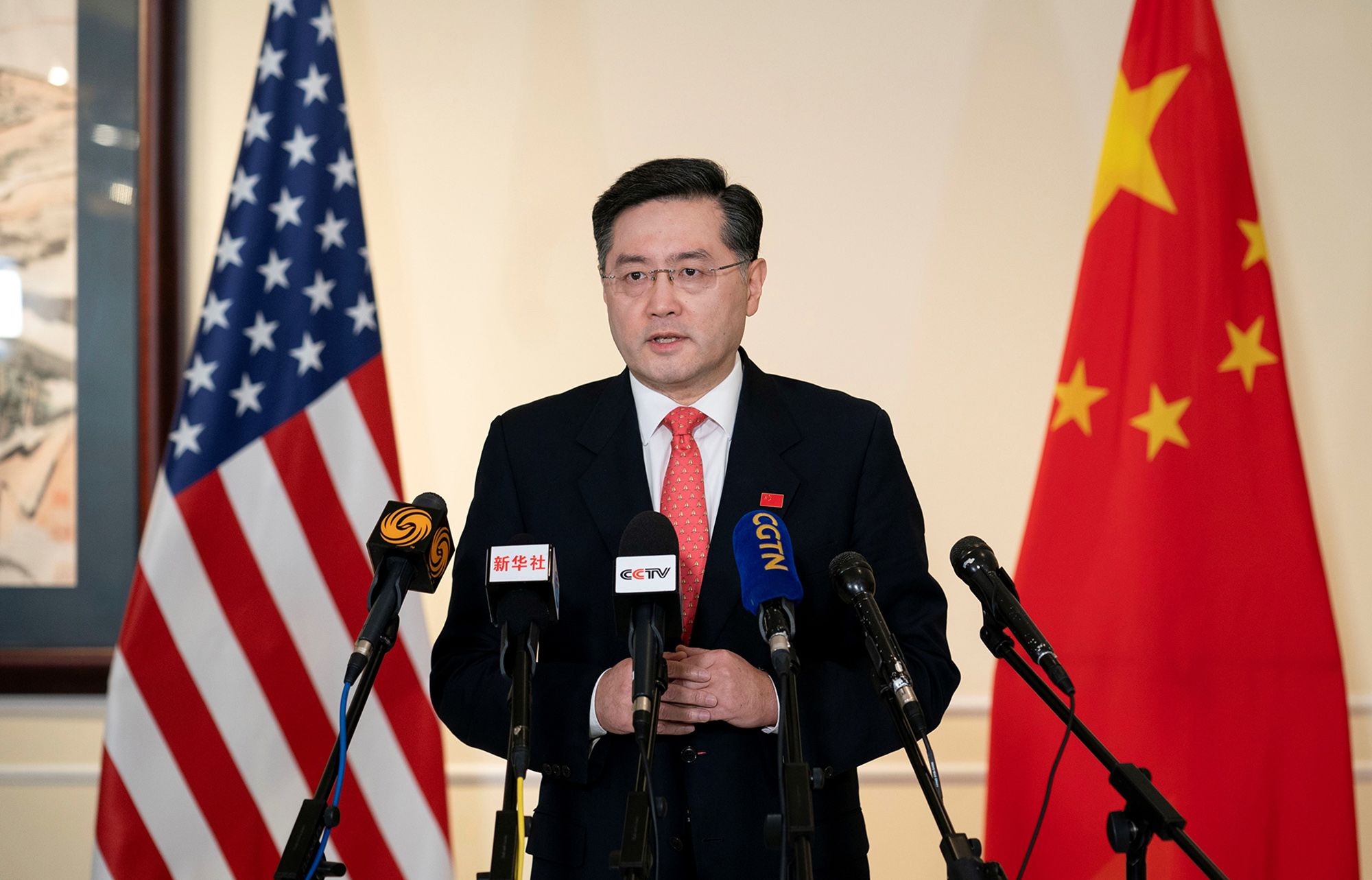
China called on the U.S. to refrain from sailing naval vessels through the Taiwan Strait, saying Beijing would take further action in the wake of House Speaker Nancy Pelosi’s visit to Taipei.
China’s ambassador to Washington, Qin Gang, said Tuesday that China viewed such Taiwan transits as an escalation by the U.S. and an effort to support the “separatist” government in Taipei. He delivered the warning after Senator Edward Markey, a Massachusetts Democrat, wrapped up the second trip to the island in less than two weeks by a U.S. congressional delegation.
“The US side has done too much and going too far in this region,” Qin said in response to a question about potential naval patrols. “I do call on our American colleagues to refrain, to exercise restraint, not to do anything to escalate the tension. So if there’s any moves damaging China’s territorial integrity and sovereignty, so China will respond. China will respond.”
Read More: Pelosi’s Taiwan Trip a ‘Wake Up Call’ for the U.S. and China
The Biden administration has said it would conduct air and maritime transits through the Taiwan Strait after China responded to Pelosi’s trip with a series of military drills around the island, including likely firing ballistic missiles over Taipei. The U.S. has long held that such transits, like congressional visits, are consistent with its “one China” policy not to formally recognize the democratically elected government in Taipei.
The Navy has conducted an average of about nine trips annually through the strait over the past decade, according to data compiled by Bloomberg, far fewer than the “100 navigations” Qin said the U.S.makes each year. The most recent known trip came July 19, when the destroyer, the USS Benfold, sailed through the waterway.
Similarly, Pelosi was only the most senior of 149 members of Congress who have visited Taiwan over the past 10 years.
The Biden administration shouldn’t underestimate China’s resolve on the issue of U.S. congressional visits to Taiwan, Qin said, rejecting White House arguments that lawmakers could act independently. He added that such trips violate the agreements underpinning US-China relations.
“Congress is part of the government of the U.S.— it’s not an independent, uncontrollable branch,” Qin said. “Congress is obliged to abide by the foreign policy of the United States. That’s why we we feel very frustrated and dissatisfied with Senator Markey’s visit to Taiwan. It’s provocative, it’s unhelpful.”
Read More: There Are No Benefits to a Pelosi Visit to Taiwan
Separately, a bipartisan group of Japanese lawmakers plan to visit Taiwan next week, Kyodo News reported Tuesday, citing people familiar with the matter. The Defense Ministry in Tokyo had previously said that Chinese ballistic missiles landed in what Japan considers its exclusive economic zone after Pelosi’s trip.
Qin defended the Chinese military’s response to the trip, saying the drills were “open, transparent and professional.”
“We are handling a serious fallout from Pelosi’s visit,” Qin told reporters in Washington. He warned the US not to “underestimate the strong resolve, determination and the capability of the Chinese government and the people to defend national sovereignty and territorial integrity.”
Qin also downplayed the threat of an imminent Chinese attack on Taiwan, saying he wasn’t aware of a specific timeline.
“People are over-nervous about it,” he said, adding that speculation China had moved up the timeline for an invasion was “baseless.”
—With assistance from Kari Lindberg, Christopher Anstey and Daniel Ten Kate
More Must-Reads from TIME
- Cybersecurity Experts Are Sounding the Alarm on DOGE
- Meet the 2025 Women of the Year
- The Harsh Truth About Disability Inclusion
- Why Do More Young Adults Have Cancer?
- Colman Domingo Leads With Radical Love
- How to Get Better at Doing Things Alone
- Michelle Zauner Stares Down the Darkness
Contact us at letters@time.com